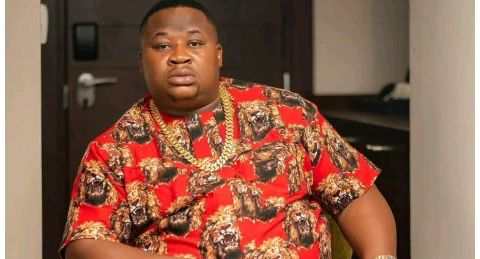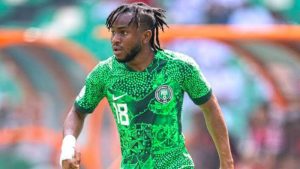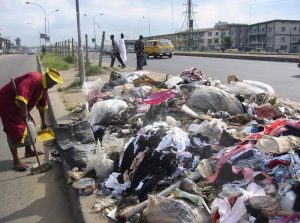
Celebrity bartender Pascal Okechukwu, popularly known as Cubana Chief Priest, has strongly condemned the arrest of socialite Emeka Okonkwo (E-Money) by the Economic and Financial Crimes Commission (EFCC), suggesting the anti-graft agency is deliberately targeting prominent Igbo figures.
E-Money was detained Monday night at his Lagos residence in Omole for allegedly violating currency laws, including Naira abuse and improper handling of foreign exchange after videos surfaced showing him spraying U.S. dollars at a public event.
In a fiery Instagram post, Cubana Chief Priest defended his associate, linking the arrest to E-Money’s growing influence following his widely-publicized Easter “Homecoming” concert in the Southeast.
“They’re coming for him because they recognize his strength,” the celebrity mixologist wrote. “This is about breaking our spirit and forcing compliance under pressure. The oppression against Igbos continues, but we won’t stop. More billionaires will emerge from our region.”
The business mogul, who faced similar charges in 2024 before his case was dismissed, vowed the Igbo community would respond politically: “Come 2027, we’ll support and vote according to our conscience. We’ll repay this treatment with our unity, energy, and financial power.”
EFCC sources confirmed E-Money’s arrest was connected to alleged violations of the Foreign Exchange Act, specifically the public display and spraying of dollar bills. This marks the latest in a series of high-profile currency abuse cases pursued by the commission.
Legal analysts note the arrest revives debates about selective enforcement of Nigeria’s strict currency laws, with critics arguing the EFCC disproportionately targets flamboyant socialites and entertainers while ignoring systemic financial crimes.
The development has sparked heated online debates, with some supporting the EFCC’s actions as necessary for economic discipline, while others echo Cubana Chief Priest’s claims of ethnic bias in anti-corruption efforts.
As at press time, E-Money remains in EFCC custody, with authorities yet to formally file charges. The case continues to generate widespread discussion about wealth display culture, regulatory enforcement, and perceived regional tensions in Nigeria’s anti-corruption drive.








